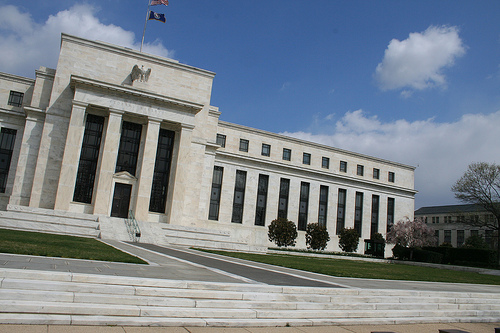As if holding some cash wasn’t already painful enough for investors with the S&P 500 hitting new all-time highs on a seemingly daily basis, now there’s this – potentially negative interest rates. As a result, you may have to start paying your bank to hold your money.
The Financial Times reports that top U.S. banks are warning they could actually start charging for deposits if the Federal Reserve lowers the interest it pays on bank reserves. For savers living on a fixed income and investors holding cash, the development would only add insult to injury. According to the FT:
Depositors already have to cope with near-zero interest rates, but paying just to leave money in the bank would be highly unusual and unwelcome for companies and households.
Meanwhile, the European Central Bank is reportedly considering a negative deposit rate for the first time ever. In the U.S., St. Louis Fed President James Bullard recently said if the economy took a downturn, one option could be a negative rate of return for money that banks park at the Fed.
Easy monetary policies from central banks and rock-bottom interest rates after the financial crisis have made it more difficult to hold cash. For example, average yields on money market funds are only 0.01%. Obviously, that’s not enough to keep up with inflation.
Indeed, extremely low interest rates have forced investors to move into traditionally riskier sectors in search of income with yields on cash and U.S. Treasuries so small.
Yet if possible, it still makes sense to maintain an emergency fund in liquid accounts like a money market fund.
“It allows you to use cash to pay for those random expenses or emergencies that arise in your financial life, instead of creating more debt or tapping into long-term investments,” says Kimberly Clouse, Director of Corporate Development at Covestor.
Cash seems like an unattractive investment now because of very low interest rates and a roaring U.S. stock market – the S&P 500 is up 29% this year. Still, some investors like to keep a cash cushion to help lower overall portfolio volatility, and as dry powder to take advantage of potential opportunities in a market pullback.
Photo Credit: skpy
Disclaimer: The information in this material is not intended to be personalized financial advice and should not be solely relied on for making financial decisions. Past performance does not guarantee future results.




